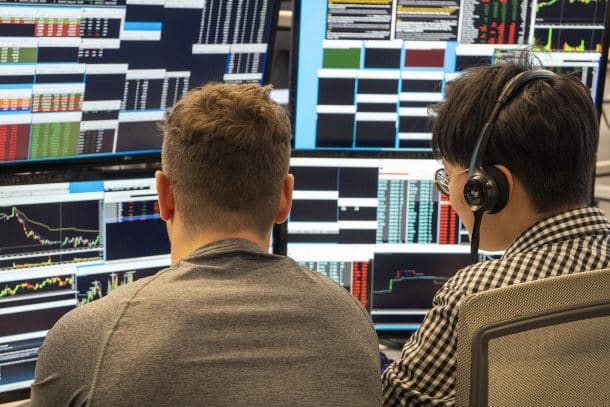Greetings from Singapore.
Today is my last day here in the new gateway to Asia. I have a day packed full of some more learning meetings and then take a 2:30 AM flight to Johannesburg, South Africa. I arrive in JNB, will shower and then head to meet some top South African traders. I have been tasked to talk about improving your patience as a trader. I had better sleep on the plane.
As preparation for my discussion I sought out my friend Dr. Andrew Menaker, trading psychologist. I have traded for 13 years, read everything on trading psychology from the greats like Dr. Steenbarger, written extensively on the topic, but wanted to improve my preparation and gain input from a specialist. You have seen some of this work on our blog in the past. SMB has been working with Dr. Menaker the past six months to create a comprehensive trader psychology training course. To create a quality program takes time. Below are his thoughts, which I wanted to share with you.
What to tell an impatient trader?
When talking to an impatient trader I always begin with FOMO: fear of missing out. The impatient trader is experiencing FOMO and is unable to manage the emotions that come with FOMO. Strong unmanaged emotions can easily trump one’s willpower or conscious decision to do or not do something.
Its very possible that inpatient traders will continue to be inpatient even after various attempts to deal with it including mental rehearsal. If that’s the case, and it often is, it suggests that the impatience is a reverberation of something deeper, something subconscious – out of present awareness. So, then the question becomes, what’s going on in the trader’s subconscious process that is producing such emotions that can trump willpower and intellect? When I work with such a trader what I almost always find is some type of unmet developmental need, perhaps a feeling of needing acknowledgment or wanting their sense of self-worth validated, etc…..lots of different possibilities here. What’s usually happening for the inpatient trader who has not responded to mental rehearsal or other cognitive-behavioral techniques and continues to be inpatient is that they are not trading the market, they’re actually trading their subconscious need for validation, etc. This is where a trader can often benefit from guidance, such as coaching. It’s important to identify the unmet developmental need(s) and to develop a strategy that deals with the core issue, not just the symptom, otherwise the problem will continue.
The interesting thing is that no one is perfect, we all have some unmet developmental needs, but for some people those issues are stronger and more easily triggered by the environment, and for a trader the environment is the market. Traders may understand on an intellectual level that the market generates a lot of opportunities, but FOMO and the emotions that come with FOMO are often associated with an unmet developmental need can easily overwhelm one’s intellect—which is where willpower comes from—the pre-frontal cortex. Although our pre-fontal cortex—our intellect and willpower—can do many wonderful things, most of our mental functioning is outside of present awareness, subconscious. Think of an iceberg, the part you can see above water is just the tip, most of it is below the surface, mental functioning is similar.
Another way of approaching impatience is looking at it from the perspective of why does the trader have such a strong need for immediate gratification? If our life is not very satisfying, if we don’t experience much contentedness outside of trading, it greatly increases the chances that the trader will have a higher need for immediate gratification in trading, which is often expressed as impatience. I was talking to a neuroscientist I know at Stanford, Jodie Trafdon, PhD, who has identified specific types of neurons and levels of key neurotransmitters associated with the need for immediate gratification. Brain research with rats, monkeys, and humans all show similar results: the experience of low satisfaction or low contentedness in life is associated with impulsive behavior that is an attempt to grab a reward. The remedy with this approach is to teach the trader specific ways to increase the experience of gratitude in their life to counter-act the need for immediate gratification. Gratitude will slow down an impatient trader.
No relevant positions


3 Comments on “Some Help for the Impatient Trader”
Hi Bella where are you meeting with South African traders, is that open meeting would like to be there. Also in Johannesburg.
Thanks
This provies excellent insight for me.
I read this 3 times. Beautiful advice and wisdom! Thank you for sharing! Life is good esp when we face trials that refine our character (James 1:2)!